Trending
Opinion: How will Project 2025 impact game developers?
The Heritage Foundation's manifesto for the possible next administration could do great harm to many, including large portions of the game development community.

Featured Blog | This community-written post highlights the best of what the game industry has to offer. Read more like it on the Game Developer Blogs or learn how to Submit Your Own Blog Post
Hey Folks! This article will be putting forward the case for more localisation in games, but also how to do it on a budget. Hope you enjoy!


Hey Folks! This article will be putting forward the case for more localisation in games, but also how to do it on a budget. Hope you enjoy!
In the game industry, we often discuss how to deal with the various barriers to entry in games - What platforms the game is available on, complexity of controls, difficulty curves, pay models and technical requirements. Particularly in mobile, care and attention is taken to craft the perfect icons, pacing of gameplay to retain interest and pixel perfect UI button positioning to improve the player experience, as any barriers or obstructions can lose the player. One area that can severely hamper player experience that is less discussed is the integration of different languages in games.
Last week I released Narcissus on the App Store. Upon launch, the game featured 14 different languages, including the following:
English
French
Spanish
Portuguese
German
Swedish
Dutch
Polish
Italian
Russian
Arabic
Chinese (T)
Chinese (S)
Japanese
I managed to get this done for my app for free and with around 2 weeks of work.
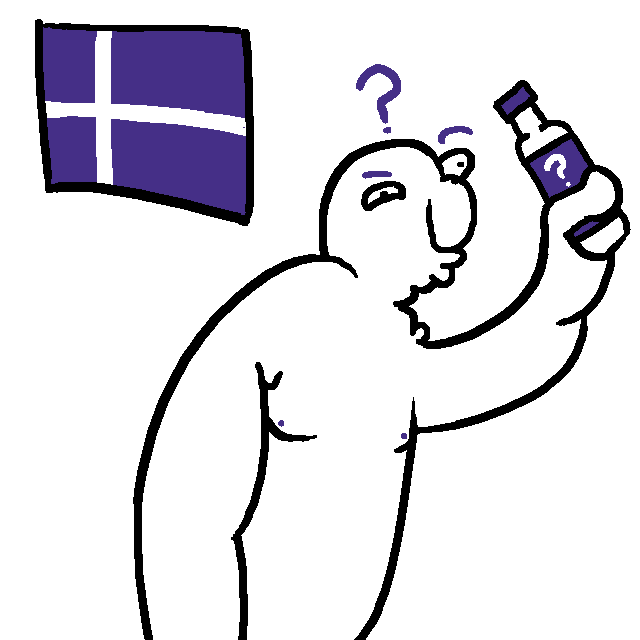
So why localise in the first place? For one, it increases your audience, but in particular it makes them feel included and accommodated for. Would you feel less inclined to play a game if you couldn't read the instructions or the narrative to give context to the actions of characters? Having to watch films such as Akira or The Illusionist without translations - whilst the mood of the setting and emotions of the characters is recognisable, so much essential information is lost without subtitles/dubbing.
Here's an example of the complications that can occur across language barriers in the real world; I remember buying a friend a gift in Sweden as a gift for organising the trip, and I spotted a shelf of cheap bottles of vodka that looked like a bargain bucket version of a famous brand. After presenting it to him, he informed me that I'd actually purchased a one litre bottle of vinegar.
Many people were able to explore this feeling of confusion when playing a previous game of mine, Morse. In the game, your main interactions are via a series of dots and dashes. It is possible to do, but is an awkward process of trial and error. One publisher I approached the game with even suggested the game would be too difficult to sell, as learning a language to play the game would be a too high of a barrier for audiences. Yet, when we put out games without local translations, this is what we expect a number of non-English speaking countries to do.

So what can we do to help with this? My answer was to translate Narcissus to a bunch of different languages, but you could just stick with a couple to begin with. The first game that I localised, Flotate, I only translated to French and the game itself only needed a handful of words and this meant the festivals it was exhibited at could be enjoyed by its attendees in the local language.
For sourcing my translations for Narcissus, the major element that enabled me to do this came from being connected with friends from countries throughout the world (From Sweden all the way to Saudi Arabia!). I would personally suggest if you can get at least 2 people for each language; one to translate and the other to check.
There are other ways of doing this - If you have a forum or thread for your game, putting out a request for translations is an easy trick. I got Russian and German translated for Narcissus via this method. I've often seen on Steam pages threads and workshops to translate the game content. If a fan is willing to take the time to translate your game to their language, it's not a far conclusion to reach that there are others out there who wish for the same.
Even using paid sites are cheaper than you think - I initially looked into the cost of translation and for all of the text in my game 14 languages of localisation it averaged around £50.
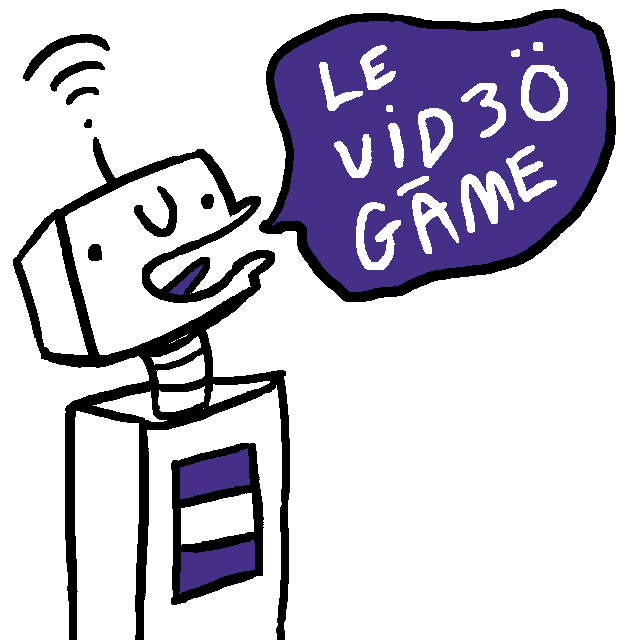
One to absolutely not do (Yet) is translations via automated systems E.g. Google Translate. Whilst they have fantastic capability in translating content (I used it for reading a lot of reviews in international regions), it doesn't factor in elements such as context, such as translations specifically for games or sometimes order of words. It does usually do a good job with singular words, but can make mistakes and in a commercial work that can do more bad than good. If you go down this route, try and find a local speaker to check them with (But if you have that available, why bother with the automated system?)
### The speed bumps of localisation
Translating comes with its own collection of issues - One in particular is making sure you have all the words necessary for your game before you localise. I found near the back end of development on Narcissus as I added the third party features I needed extra words (settings, redeem purchase, buy ads). This was followed by the realisation I'd need to reach out to the translators and go through the same checks again for each of the new words in all 14 languages. Not having these extra translations constrained my workflow and I had to create very specific symbols to compensate and avoid the hassle.
There's also the issue of UI layout - whilst one word may be short in one language, it can be very long in another! This can make designing menus quite difficult - Just look at the variation below!

Regarding the option of icons or symbols instead of words, there's a risk that if your icon is illegible, rather than making it universally compatible for all languages, your interface becomes incompatible with every one of them. Check your menu icon sheet with at least 5-15 people, any that bring up a number of inaccurate answers, replace with more easy to understand alternatives.
I'll admit that translation can be near impossible with certain types of game without a budget or dedicated team, for example narrative heavy games require expert checking for context, flow and structure. But if you're building an app with just a few select words, it's worth the effort.
One of the advantages of localisation is once you've done it once, you don't need to do the bulk of it again - common phrases like "push button to start" and "level select" are common throughout many games so the most part can be reused, saving future development costs/time.
Have your translations? Excellent. Now you need a method of putting them in your game. Even if you have the translations you need, localised fonts can be expensive and creating your own for a language you can't read is very hard! Thankfully Google has you covered: Google Noto Fonts. This is a collection of free fonts for all languages as well as variations of each for varying regional styles. This saved a huge amount of cost for the project and is well worth considering. For Narcissus, I had to manually create these as images rather than as type files/fonts, so for other software or game engines this process might be easier.
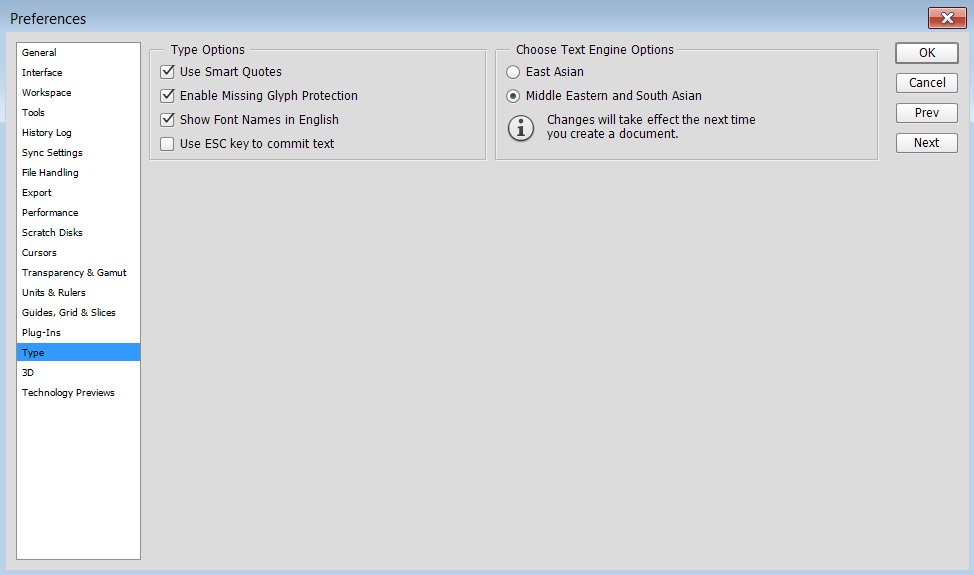
Super important tip with Arabic - If you're doing Arabic as a language for your game, you need to change the language settings under Preferences -> Type -> Choose Text Engine Options. Switch from East Asian to Middle Eastern and South Asian. This will make sure your text is added in the correct manner; since Arabic copied via the clipboard reverses when pasted (Since Arabic is read from right to left). I cannot describe the frustration for having translated the entire game to Arabic only to find all of it was written backwards (E.g. OLLEH DLROW). Do a sample piece, such as the title of your game or a quick word like Menu and test this with your translator. Games developer Rami Ismail has done some excellent documentation of sloppy translation mistakes in games; even I have some typos to go back over in Narcissus despite my efforts. Remember, an easy way to spot if your text is backwards is if the letters in the word are all disconnected (Most Arabic text flows from one letter to the next).
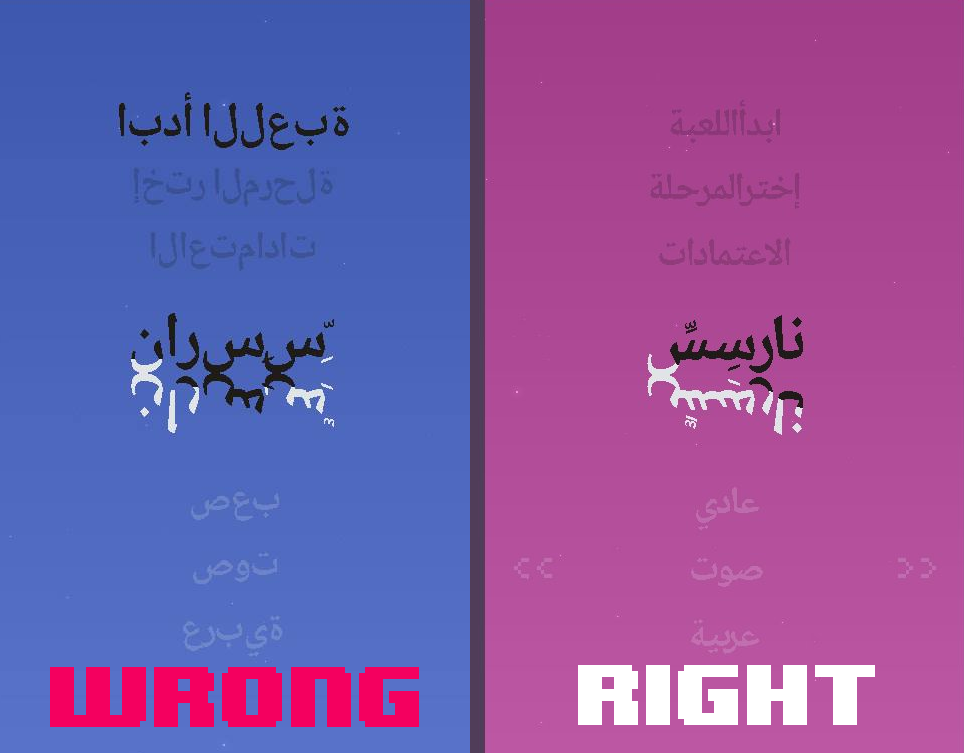
**List of most spoken languages worldwide: Estimates via Ethnologue**
Chinese: 1,213 Million
Spanish: 329 Million
English: 328 Million
Arabic: 221 Million
Hindi: 182 Million
If you look at the list of the most spoken languages worldwide, English lists third in the tables. If you think about how many people excluded or have the barrier of using a non-native language to interact with your game, it's quite a lot. Even catering for Spanish alone is doubling your app accessibility.
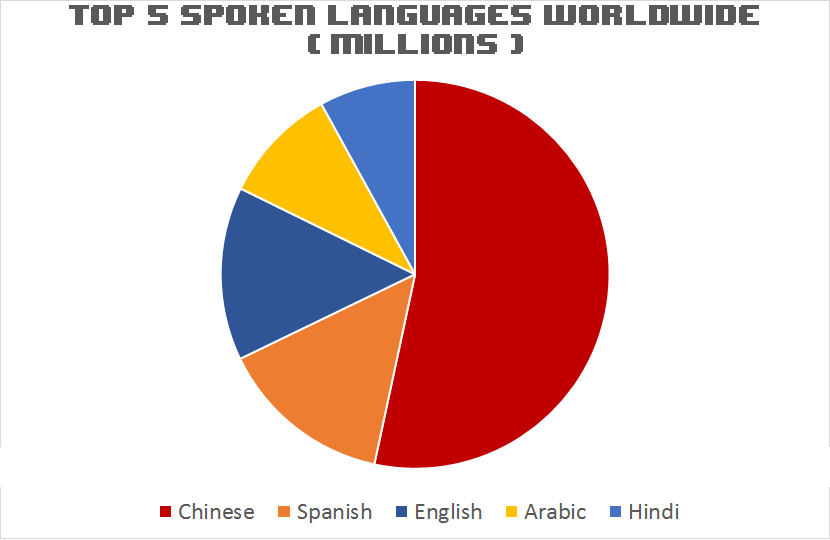
Another thing to consider is 3 of the top 5 languages spoken have an alphabet that is completely different to the English language not only in content but also presentation. Imagine trying to not only translate a language but also decipher the text it's written in, that is a high barrier to entry for many. People might be able to figure out how to navigate your game without understanding the individual words, but the experience of not understanding how to operate an interface is never a comfortable one.
Inevitably there was a limit to what I could do in the time constraints that I had to submit the App on time, so whilst the game is translated, the App description/storefronts were not (To avoid delays on the final release from submission issues). In future updates, I will be going back through and adding the respective translations. Another thing I'll be looking into for future releases is a method of changing the language based on region downloaded automatically, so rather than having to navigate to the main menu it'll either be instantaneous or an intial screen the pops up on the first playthrough.
For me, localising does appear to have been appreciated, with local press in various languages mentioning the benefit of translated versions in their articles. Narcissus received features on the Apple Store around the world and in turn the extra effort to translate may have influenced more prominent features in countries such as Japan, where it got a front page banner feature. Unfortunately there isn't way to determine its effect outside of comments and reviews mentioning its impact.
An interesting factor to consider is curators of regional storefronts or press may highlight or promote games that make the extra effort to match their language. There has been an international exhibition that I've submitted games to in the past that have welcomed and even helped translate the game to multiple languages.

On a personal level, localising the game has been incredibly useful as well to my own development, learning a lot of the similarities between different languages, getting the workflow down for future projects and building a database of words for future projects.
By localising our games, we can grow the audiences of our industry even further and lower one more barrier for entry to the realm of games. As with visiting other countries and learning the local dialect, people appreciate the effort to connect and adapt. I urge you to do the same with your own games.
#localisation #language #narcissus #translation #gamedev
Read more about:
Featured BlogsYou May Also Like